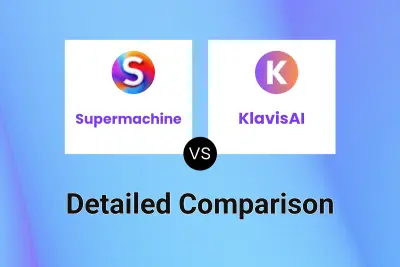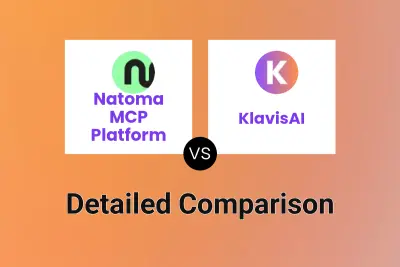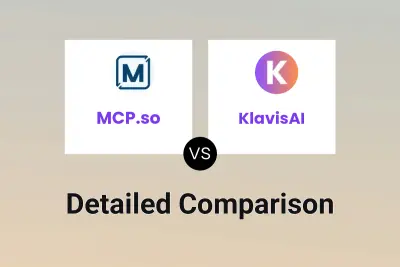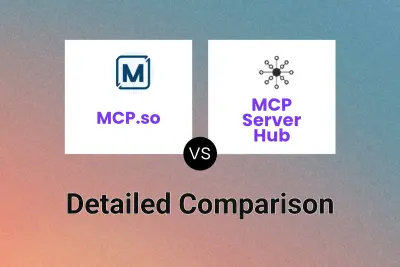 MCP.so
VS
MCP.so
VS
 KlavisAI
KlavisAI
MCP.so
MCP.so serves as a comprehensive, community-driven platform dedicated to collecting and organizing third-party MCP (Model Context Protocol) Servers and Clients. MCP is an open-source protocol enabling AI systems, such as Claude, to securely connect with diverse data sources, tools, and prompts through a standardized client-server architecture. This platform acts as a central directory for users seeking to enhance their AI applications by leveraging these external resources.
The platform features a wide array of MCP Servers, which provide context, tools, and prompts by exposing data sources like files, documents, databases, and API integrations. It also lists MCP Clients, applications that utilize these servers for AI interactions. MCP.so facilitates the discovery and sharing of these components, allowing users to find suitable servers and clients for integrating real-time information and functionalities securely into their AI workflows, including integrations with applications like Claude Desktop.
KlavisAI
KlavisAI offers infrastructure designed to facilitate the use, building, and scaling of Model Context Protocols (MCP) for AI applications and agents. It aims to simplify the process of adding tools dynamically at runtime, avoiding the complexity of preconfigured integrations and manual database updates. The platform provides stable and reliable MCP servers hosted on dedicated cloud infrastructure, ensuring high availability for production needs.
KlavisAI supports secure integration through built-in OAuth, enabling protected access to user resources when required by an MCP. It offers popular official and in-house MCP servers with SSE transport, accessible via clients on Slack, Discord, and the web. Developers can interact with MCP servers through a standardized RESTful API, streamlining the integration of MCP functionality into their applications.
Pricing
MCP.so Pricing
MCP.so offers Free pricing .
KlavisAI Pricing
KlavisAI offers Freemium pricing with plans starting from $90 per month .
Features
MCP.so
- Extensive MCP Server Directory: Browse the largest collection of third-party MCP Servers.
- MCP Client Showcase: Discover various MCP Clients for AI interactions.
- Community-Driven Platform: Relies on community contributions for server and client listings.
- Organized Discovery: Servers and clients categorized and tagged for easy searching.
- MCP Protocol Information: Provides details and FAQs about the Model Context Protocol.
- Easy Submission Process: Submit new MCP Servers or Clients via GitHub.
KlavisAI
- MCP Server Hosting: Provides stable, reliable, production-ready MCP servers.
- Secure OAuth Integration: Enables secure access and management of user resources via OAuth.
- High-Quality MCP Servers: Offers popular official and in-house MCP servers with SSE transport.
- Multi-Platform MCP Clients: Access MCPs directly through Slack, Discord, and web clients.
- Standardized API: RESTful API for simplified interaction and integration with MCP servers.
Use Cases
MCP.so Use Cases
- Discovering MCP servers for specific AI integrations (e.g., database access, API interaction, web scraping).
- Finding compatible MCP clients for different AI models and development environments.
- Learning about the Model Context Protocol and its applications.
- Facilitating the connection between AI assistants (like Claude) and external tools/data.
- Sharing custom-built MCP servers and clients with the AI developer community.
KlavisAI Use Cases
- Dynamically adding tools to AI applications at runtime.
- Simplifying the integration of diverse tools for AI agents.
- Scaling MCP server usage for growing AI applications.
- Securely managing user resource access for AI tools.
- Standardizing tool integration across different AI models and platforms.
FAQs
MCP.so FAQs
-
What is MCP (Model Context Protocol)?
MCP is an open-source protocol developed by Anthropic that enables AI systems like Claude to securely connect with various data sources. It provides a universal standard for AI assistants to access external data, tools, and prompts through a client-server architecture. -
What are MCP Servers?
MCP Servers are systems that provide context, tools, and prompts to AI clients. They can expose data sources like files, documents, databases, and API integrations, allowing AI assistants to access real-time information in a secure way. -
How do MCP Servers work?
MCP Servers work through a simple client-server architecture. They expose data and tools through a standardized protocol, maintaining secure 1:1 connections with clients inside host applications like Claude Desktop. -
Are MCP Servers secure?
Yes, security is built into the MCP protocol. Servers control their own resources, there's no need to share API keys with LLM providers, and the system maintains clear boundaries. Each server manages its own authentication and access control. -
How can I submit my MCP Server to mcp.so?
You can submit your MCP Server by creating a new issue in our GitHub repository. Click the 'Submit' button in the navigation bar or visit our GitHub issues page directly. Please provide details about your server including its name, description, features, and connection information.
KlavisAI FAQs
-
What is MCP?
Model Context Protocols (MCP) enable tools to be added dynamically to AI applications/agents at runtime in a standardized way, eliminating the need for preconfigured integrations during design-time. -
What is Klavis AI?
Klavis AI is building open-source infrastructure designed to make MCP easy for everyone to use, build, and scale. It provides Slack/Discord/Web clients, hosted MCP servers, and a simple web UI. -
Is Klavis AI secure?
Yes, Klavis AI includes security features like Secure Integration with built-in OAuth support to enable secure access to user resources when required by an MCP. -
How does the Klavis AI API work?
The Klavis AI API provides a standardized RESTful interface to interact with MCP servers, allowing developers to integrate MCP functionality via simple API calls, abstracting the complexity of individual MCP implementations.
Uptime Monitor
Uptime Monitor
Average Uptime
97.78%
Average Response Time
1766.23 ms
Last 30 Days
Uptime Monitor
Average Uptime
100%
Average Response Time
313.87 ms
Last 30 Days
MCP.so
KlavisAI
More Comparisons:
-

Supermachine vs KlavisAI Detailed comparison features, price
ComparisonView details → -

Natoma MCP Platform vs KlavisAI Detailed comparison features, price
ComparisonView details → -

MCP.so vs KlavisAI Detailed comparison features, price
ComparisonView details → -

MCP.so vs MCP Server Hub Detailed comparison features, price
ComparisonView details →
Didn't find tool you were looking for?